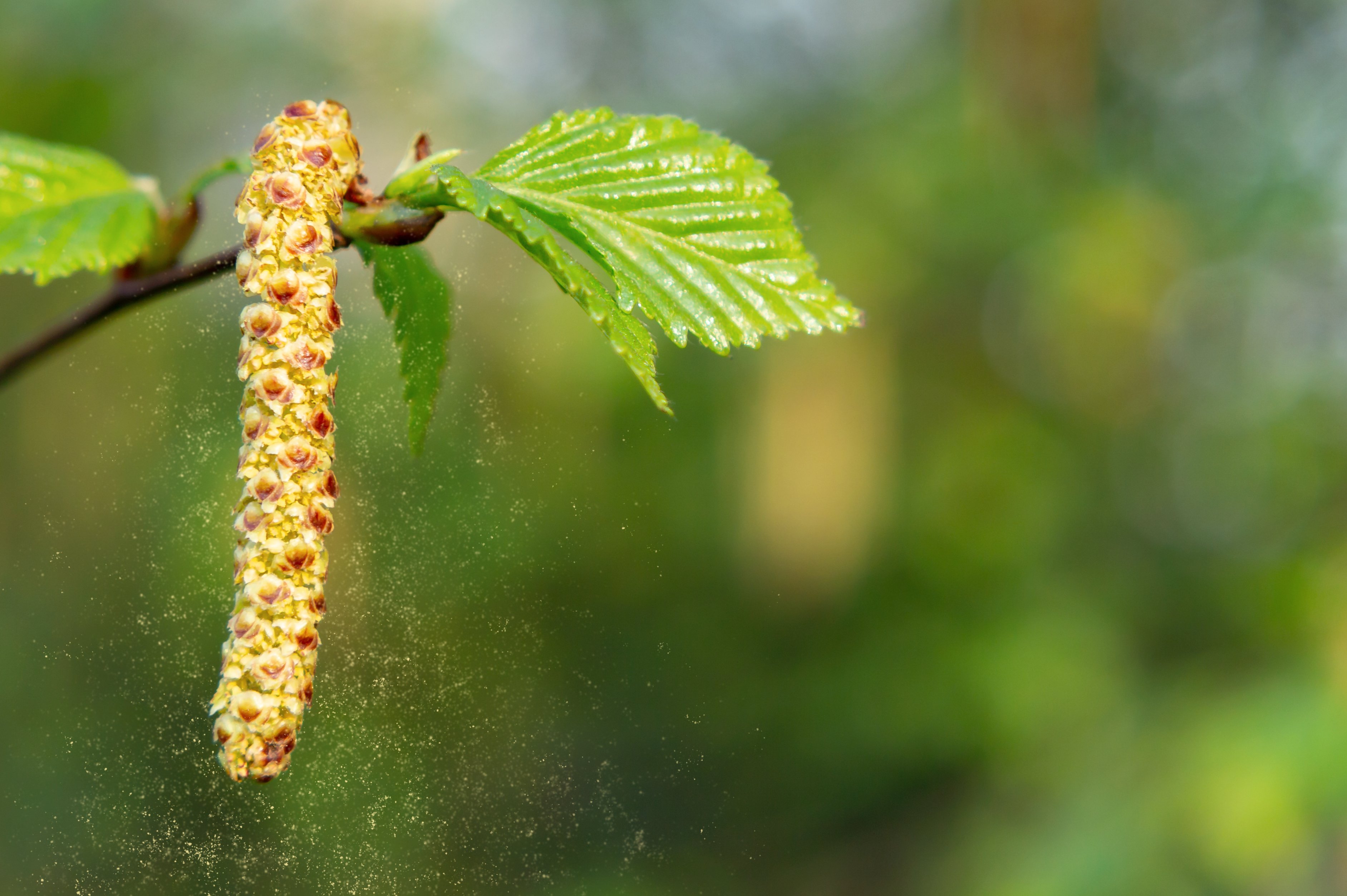
(Vienna, 17 March 2022) This year, the pollen count started significantly earlier and the levels are higher than in previous years. At today's press conference held by the Austrian Pollen Monitoring Service of MedUni Vienna and the information platform IGAV (Allergen Avoidance Interest Group), experts predicted that this trend will continue over the course of this year's pollen season. In addition, the pandemic is further slowing down the already often inadequate care of those affected. New measures are expected to bring improvements in diagnosis and treatment of pollen allergies.
As an EU-wide survey of doctors shows, allergen-specific immunotherapy (AIT), which is important for so many patients, was used significantly less at the beginning of the pandemic than previously.1 Erika Jensen-Jarolim from the Institute of Pathophysiology and Allergy Research at MedUni Vienna and President of the Austrian Society of Allergology and Immunology (ÖGAI) said, "However, AIT is the only form of treatment that has a causal effect and the potential to prevent the development of further allergies or secondary diseases such as asthma." Only one out of ten doctors initiated the injection therapy as usual. Nearly 60 percent said they had postponed starting therapy until some point after the pandemic. The situation was somewhat better with AIT in the form of tablets or drops. About one-third (35 percent) said they had initiated therapy regardless of the pandemic.
"In the meantime, although the situation has improved, the resulting backlog is still being felt by practitioners and patients," reported Wolfram Hötzenecker, head of the Department of Dermatology and Venereology at Kepler University Hospital, Linz, and ÖGAI vice president. "Allergy sufferers are having to wait much longer than usual for appointments at specialized centres. This is worsened by the healthcare worker absences due to the current highly contagious Omicron variant."
High exposure to birch pollen expected
In addition to the more severe conditions caused by the pandemic, pollen allergy sufferers were affected earlier and more intensively this year due to the above-average mild temperatures in January and February. "The pollen count for hazel and alder started very suddenly. For example, the trees and shrubs released an above-average amount of pollen into the wind which was particularly debilitating for allergy sufferers," Uwe Berger from the Austrian Pollen Monitoring Service at MedUni Vienna explained.
The next exposure wave follows with ash and birch. They are also expected to flower more intensively this year. Uwe Berger said, "The start of the birch pollen season this year is expected in the last weeks of March which is also earlier than usual." The widespread avenue tree has a biological pattern: a weaker season is followed by a strong one. "Since 2021 was a rather mild season, we should expect a strong flowering season this year. This is also evidenced by the density of birch catkins which is well above average this year."
New services for allergy sufferers and doctors
To achieve improvements in the diagnosis and treatment of pollen allergies, new services for doctors and patients have now been launched at the Austrian Pollen Monitoring Service. Markus Berger from the Austrian Pollen Monitoring Service at MedUni Vienna explained, "Via the platform www.pollenallergie.at, doctors can access information about their patients and establish a link to the pollen count in the affected person's region." The patients' regular entries about their allergy symptoms in the pollen diary, which can be found at www.pollentagebuch.at and is part of the pollen app, form the basis for this service. Wolfram Hötzenecker said, "This service provides doctors with valuable information and saves time. Because if practitioners know which allergen their patients react to, they can conduct a targeted medical history and additionally support their treatment decision. The service can also be used to evaluate treatment success over the years."
The more users that enter their medical conditions in the pollen diary, the more targeted the offers of the Austrian Pollen Monitoring Service can be. Thus, the pollen app always provides a quick and individual overview of where and at what level the twelve most important allergy triggers are currently in the air. This offering is being further developed on an ongoing basis. Currently, readability has been made easier. An FAQ section has also been set up. Pollen information can now also be obtained via the instant messaging service Telegram.
New training for allergy experts starts
As the number of pollen allergy sufferers continues to increase, there is also a growing need for specialists who are knowledgeable in the diagnosis and treatment of this condition. The new interdisciplinary training "Specialization in Allergology" is intended to remedy this situation. Specialists and general practitioners can begin the 18-month training program as of this summer. "A ray of hope for the growing number of allergy sufferers in our country who urgently need expert doctors," said Wolfram Hötzenecker.
Link tips:
www.pollenwarndienst.at – Individual pollen exposure, download pollen app, online self-test, etc.
www.pollenallergie.at – New service for doctors
www.allergenvermeidung.org – Information platform for allergy sufferers.